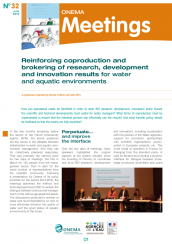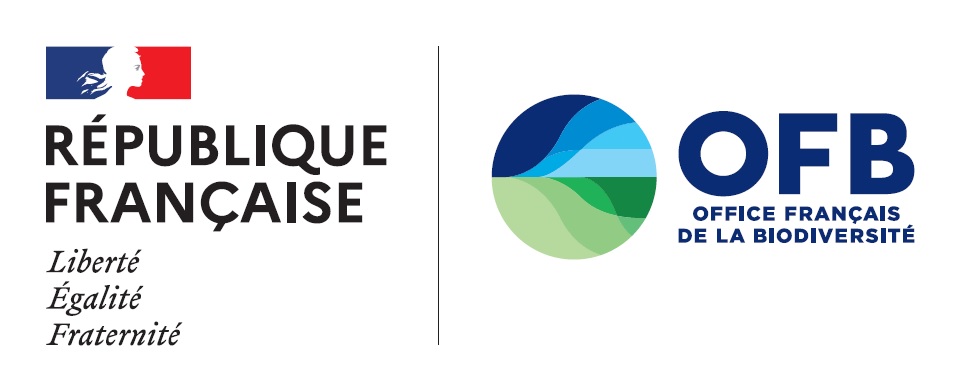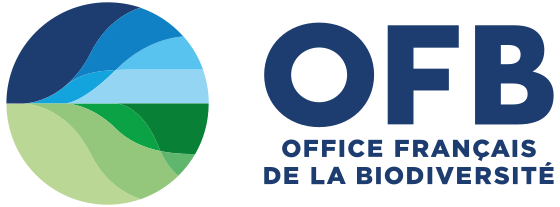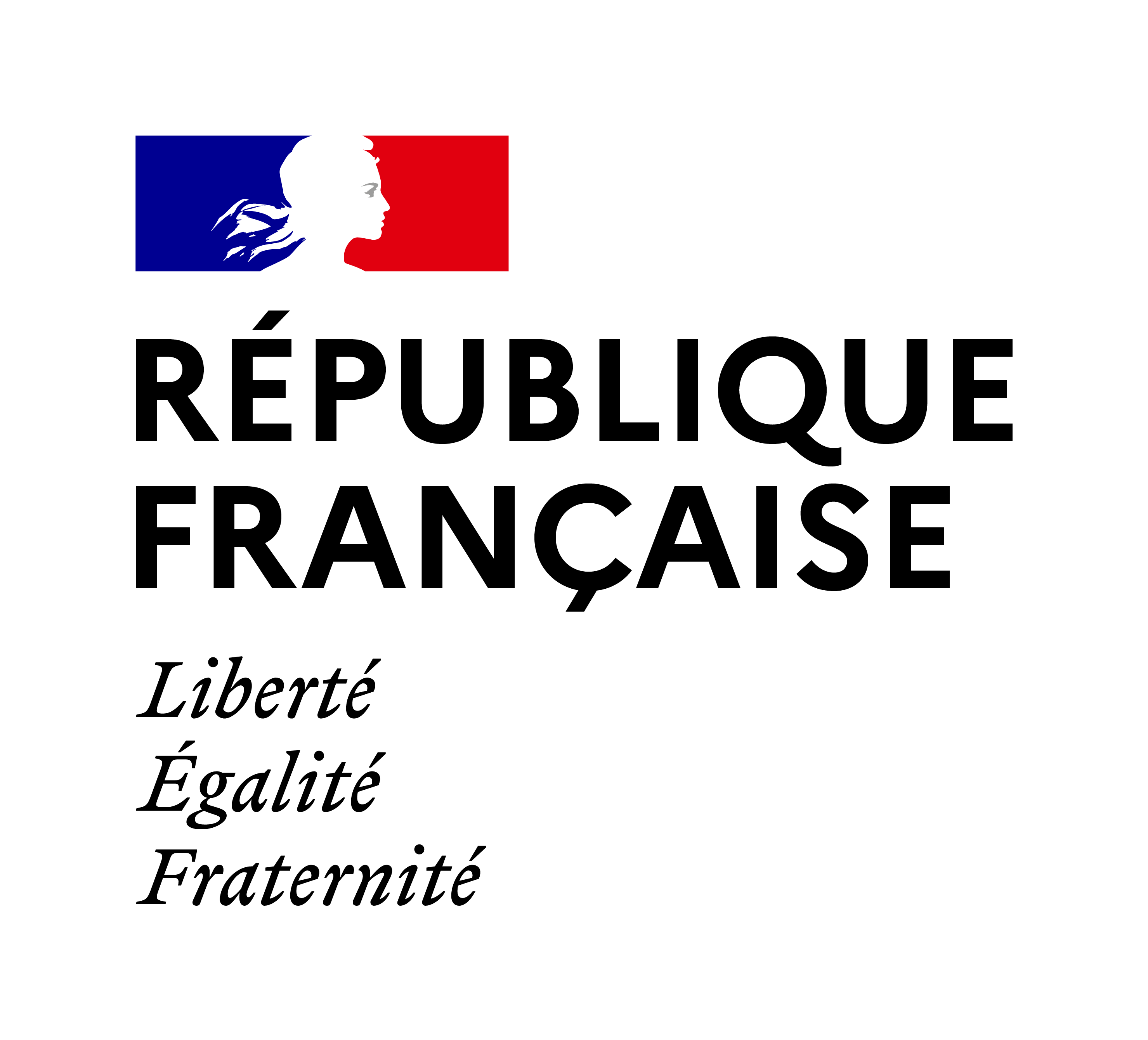Meetings
The aim is to highlight the seminars by presenting the main lines of these seminars in the form of a short summary illustrated with examples and testimonials. They help to disseminate information on the major issues of tomorrow, on the preservation and restoration of biodiversity, and in particular for achieving the goal of achieving good water status imposed by European and national policies.
A hardcopy of each document may be requested as long as stocks last. Please justify your request when writing to veronique.barre [a] afbiodiversite.fr
LIFE WolfAlps EU 2022 Conference: Is the grass always greener elsewhere? N° 90 |
After having been exterminated in certain countries, the wolf is returning naturally and extending its territory on the continent, not without generating tensions. Managing this conflictual situation has become a major issue. How do our European neighbours manage cohabitation with the predator? Twelve experts representing seven European countries provided some partial answers.

Natural water retention measures comprise an array of initiatives to restore the natural properties of ecosystems in view of slowing the runoff of surface waters and increasing the infiltration capacity of soil. Examples from projects in France stress the multiple benefits of these measures.
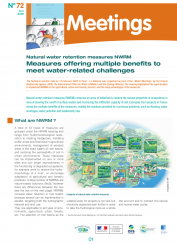
Dam removal - The Sélune River free to run - n°70 |
What happens when a river is once again free to run? In the Sélune valley (Manche department in Normandy), the largest dam-removal project in Europe is being carried out in step with an unprecedented scientific programme aiming to better understand the changes in the ecosystem, monitor the return of migratory fish and participate in the future development of the valley.
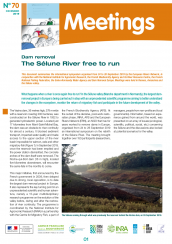
Restoration of river continuity: model initiatives across France and Europe - n°54 |
The French National River Restoration Centre, led by the French Agency for Biodiversity (AFB), organised a workshop and field visits on river continuity restoration initiatives. This was an opportunity for practitioners involved in the management of aquatic environments to discover reproducible actions targeting multiple issues, carried out in Italy, the United Kingdom, Finland and France.
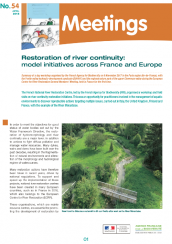
Ecological continuity in littoral wetlands, a local, national and European issue - n° 41 |
Questions concerning littoral wetlands are being raised during a time of transition impacted by both natural phenomena (e.g. the infl uence of climate change on littoral wetlands) and institutional changes. In this highly fl uid context, the objective is to produce a joint project for the Atlantic, Mediterranean and Channel/North Sea coasts, based on a shared vision of the issues.
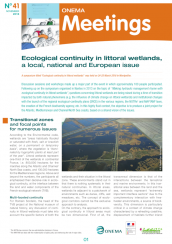
A national centre to promote river restoration - n°40 |
In a few months, France will have its very own National Centre for river restoration, like a number of other European countries. In order to collectively consider this centre’s priority activities, Onema organised a day of discussion with the relevant public-sector stakeholders on 1 December 2015 in Paris.
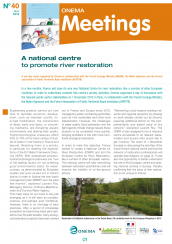
Head water streams, a critical issue for water resources - n°36 |
The participants brought together for the “Head water streams – How to reconcile the issues affecting these exceptional territories?” symposium took part in interesting debates on the issues, knowledge and actions undertaken in these territories. This symposium forms part of the actions of the 2014-2018 National Plan of action for Wetlands.
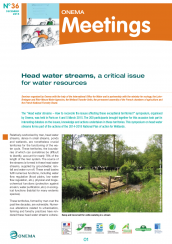
Accompanying implementation of French ecological networks dans les territoires - n°35 |
The meeting, with an array of speakers, enabled researchers, elected officials, local governments, State services, developers, managers of natural areas and associations to trade thoughts on the issues, techniques and measures involved in promoting biodiversity and ecological continuity. The operational phase in network implementation has raised a number of questions.
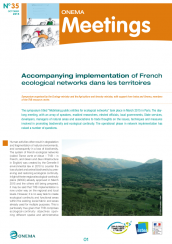
River restoration and natural water retention measures - n°33 |
Natural water retention measures as well as aquatic ecosystems’ restoration and preservation provide means to achieve good water status as required by the Water Framework Directive (WFD). In order to make progress on that topic, the workshop aimed to promote a better integration of European directives and policies through river restoration and natural water retention measures.
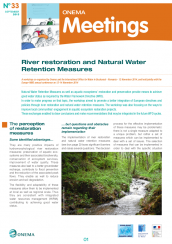
How can operational needs be identified in order to steer RDI (research, development, innovation) policy toward the scientific and technical developments most useful for water managers? What forms of coproduction must be implemented to ensure that the intended persons can effectively use the results? And what transfer policy should be instituted so that the results are fully exploited?
